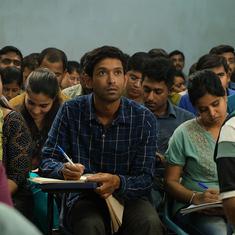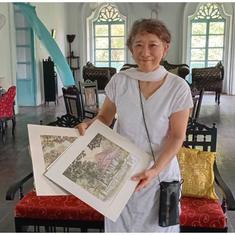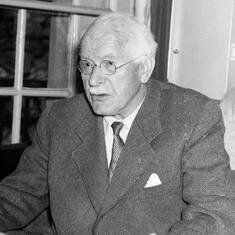Singh had worked in Dubai earlier, from 2006 to 2011, for three different companies, and had passed the medical test each time he started a new job. But the fourth time, the authorities told him he had tuberculosis and sent him home.
Singh, who now lives in New Delhi, said that he did have a lung scar but has never had TB or exhibited symptoms typical of the disease, such as a fever, a persistent cough and night sweats. The lung scar, he said, was the result of a previous respiratory infection unconnected to TB.
His isn’t an isolated case. Over the past two years, the UAE's TB screening policy for foreign workers has become increasingly aggressive, targeting not just those with active tuberculosis, but anyone with a lung scar.
The scale of the deportations resulting from this policy is difficult to estimate because UAE authorities were not forthcoming. The country's Mumbai consulate said Scroll.in should email the health ministry, but neither that ministry nor the immigration ministry responded to email queries.
But cases abound. Singh has uploaded a petition on change.org, an advocacy website, urging the International Labour Organisation to challenge the UAE's policy. The petition has gathered nearly 5,000 signatories, including at least a dozen people who have posted comments saying they had had the same experience. Others have contacted Singh privately, he said.
The deported employees have faced considerable hardship. They had given up jobs at home, taken loans to travel to the UAE and made financial commitments based on the salaries they expected to earn from their positions in the Gulf.
"I went to into depression on my return," said Singh, who has not yet been able to find a job to his liking in India. "My father had suffered a paralytic stroke and I needed the money that I was earning in Dubai for his treatment."
Scroll.in spoke to six people across India, including Singh, who said they had been sent back from the UAE because of lung scars. Three said they had been permanently banned. The four who were in white-collar jobs eventually found work on their return to India, but said they had had to take huge pay cuts. The fifth was a homemaker who had to return to India with her son in October, leaving her husband behind in Dubai.
Lung scars
A lung scar can show up on a chest X-ray for several reasons. It is likely to show up for those with active tuberculosis — people infected with the TB bacillus who exhibit symptoms. Previously Gulf countries would send back foreign workers with active TB, fearing that they would spread the infection, said Dr Mario Raviglione, director of WHO's global TB programme.
But of late, Gulf countries have not been deporting foreign workers found with active TB but are treating them — in line with good public health practice, said Raviglione.
Ironically, while the UAE has mostly stopped sending back foreign workers with active TB, it is now doing this to people with lung scars but with no symptoms of TB.
For such people, a scar could be the result of an earlier case of active TB that has been cured, a sign of an earlier respiratory infection unrelated to TB or a sign of aggressive latent TB that the body has contained.
People with latent TB have been infected by the TB bacteria but are neither ill with the disease nor able to transmit it. Such people have a lifetime risk of only 10% of falling ill with TB, according to the WHO. About one-third of the world's population, or more than two billion people, have latent TB.
The job of health authorities, then, is to ascertain to which category the person belongs because this will determine whether the person is at risk of developing active TB and infecting others. But one cannot usually ascertain this merely by looking at the scar; the doctor must also clinically examine the person and review his or her medical history.
"From a scientific viewpoint, it makes little sense to consider at risk someone with a scar from a previous TB infection and has been completely cured," said the WHO's Raviglione. "This person is as much at risk of getting TB as anyone else."
Three of the six people that Scroll.in interviewed said they fell in this group, including New Delhi-based Deepika Rakesh, 24, who was sent back from Dubai in May 2012. She had TB when she was 13 years old and had been treated for it, she said.
In a letter written in October to US-based non-profit Treatment Action Group, Dr Jaouad Mahjour, a senior regional WHO director, admitted that health authorities in Gulf states were "fully aware that individuals with old TB scars...are not infectious...Nevertheless they had several arguments hindering them from changing their screening policy." The non-profit began investigating Singh's case after seeing his petition on change.org.
Determining what to do with people who have lung scars but no TB symptoms and no past history of the disease, however, is less straightforward. The scars could be from a previous respiratory ailment other than TB, as Singh and Mumbai-based Prashant Kamath, 38, a former director in a multinational bank in Dubai who was sent back in February 2012, claimed theirs were. But the scars may also signal an aggressive latent TB infection that may become active.
The sound response is to offer both groups prophylactic treatment, said Raviglione. "It is not public-health-minded to send back people you think are at risk,” he said. "Every doctor has a responsibility to cure people with TB not only for their sake but also to prevent transmission."










